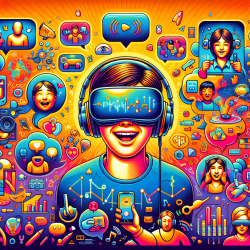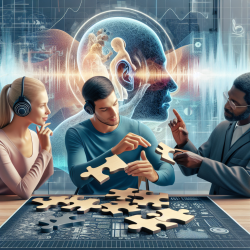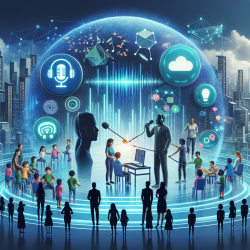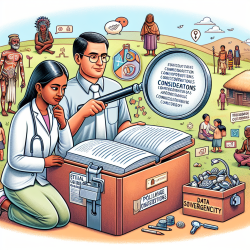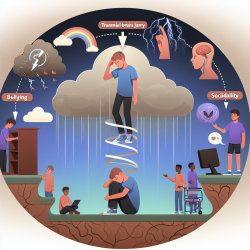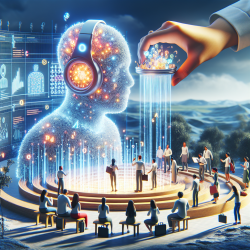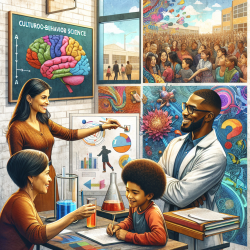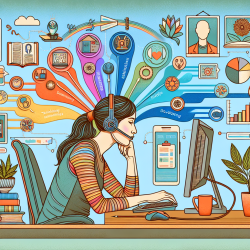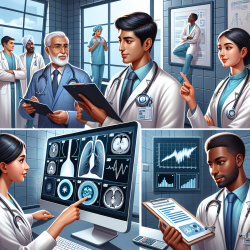In the quest to enhance socio-emotional functioning in adolescents with Developmental Language Disorders (DLD), a recent study has brought to light the potential of interactive virtual reality (VR) training. The study, titled Interactive virtual reality training to improve socio-emotional functioning in adolescents with developmental language disorders: A feasibility study, provides promising insights that practitioners can leverage to improve outcomes for their young clients.
Key Findings from the Study
The research focused on a VR training program called ‘InterAction,’ designed to improve socio-emotional skills in adolescents with DLD. The study had four primary aims:
- To examine the feasibility of interactive VR as a training method for adolescents with DLD.
- To investigate adolescents' appreciation of the VR training.
- To examine whether the VR training facilitates participants' sense of presence in social practice situations.
- To explore whether adolescents' socio-emotional skills improved during the six-session training.
The results were encouraging:
- Feasibility: The VR training was found to be a feasible method for adolescents with DLD, with no significant technical issues or negative effects reported.
- Appreciation: Adolescents highly appreciated the VR training, indicating strong engagement and positive reception.
- Sense of Presence: Participants rated the sense of presence in the VR environment as high, suggesting that the immersive nature of VR was effective.
- Skill Improvement: Although improvements in socio-emotional skills varied among participants, the overall trend was positive.
Implementing VR Training in Practice
For practitioners, integrating VR training into therapy sessions can offer several advantages:
- Immersive Learning: VR provides a safe, controlled environment where adolescents can practice social interactions without the fear of real-world consequences such as embarrassment or rejection.
- Customizable Scenarios: The flexibility of VR allows for scenarios to be tailored to individual needs, helping to address specific socio-emotional challenges.
- Enhanced Engagement: The interactive and engaging nature of VR can increase motivation and participation among adolescents, making therapy sessions more effective.
Encouraging Further Research
While the study shows promising results, it also highlights the need for further research. Future studies should focus on larger sample sizes, longer training periods, and the inclusion of control groups to validate the effectiveness of VR training. Additionally, incorporating feedback from multiple perspectives (e.g., parents, teachers) can provide a more comprehensive understanding of the impact on socio-emotional functioning.
To read the original research paper, please follow this link: Interactive virtual reality training to improve socio-emotional functioning in adolescents with developmental language disorders: A feasibility study.
Conclusion
Interactive virtual reality training holds significant potential as a tool for improving socio-emotional skills in adolescents with DLD. By integrating VR into therapy, practitioners can offer a more engaging, effective, and personalized approach to addressing the socio-emotional challenges faced by these adolescents. Continued research and refinement of VR training methods will be crucial in realizing its full potential and ensuring the best outcomes for children.
